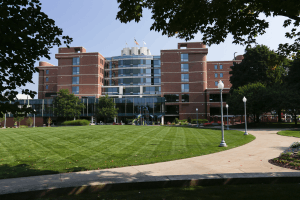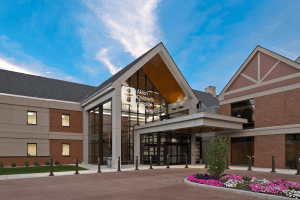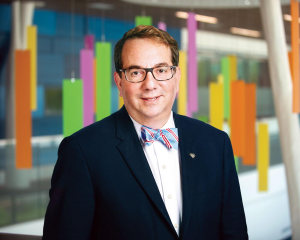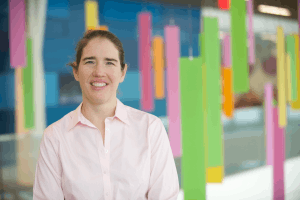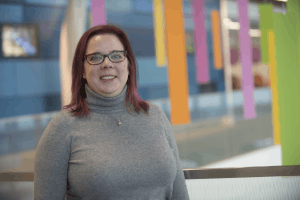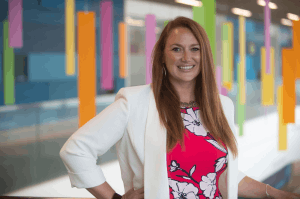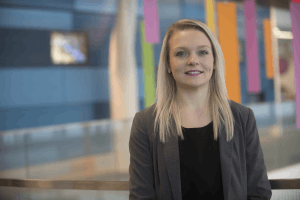Pediatric Brain Tumor Program
Back to Cancer and Blood Disorders
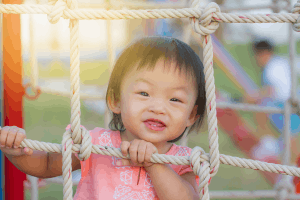
Pediatric brain tumors are the most common type of solid tumor of childhood. We recognize the unique needs of this patient population and have a specialized program to treat brain and spinal cord tumors in infants, children and teens.
Learn more...Department: 330-543-8580
About Brain Tumor Program
Akron Children’s offers the most advanced diagnostics and treatment for all types of brain and spinal cord tumors in infants, children and teens. Our team includes pediatric neurosurgeons, pediatric neuro-oncologists, pediatric neuro-radiologists and neuro-pathologists.
This team is specially trained in diagnosing brain and spinal cord tumors using neuro MRI and CT scans, as well as functional MRI, a non-invasive technique for measuring and mapping brain function. Our pediatric neuro-oncologists have completed specialty training in pediatric oncology and CNS tumor specific training.
Together, we develop individualized treatment plans to meet each child's unique medical and support needs. Your interdisciplinary team may also neurology, neurosurgery, endocrinology, physical and rehabilitation medicine, neuropsychology, ophthalmology and palliative care. These skilled professionals address the short- and long-term effects of central nervous system tumors and their treatment.
Treatment may include a combination of surgery, chemotherapy and/or radiation therapy. We also offer personalized therapies for certain brain tumors through our Shannon E. Wilkes Targeted Therapy Program. This form of medicine uses information about a patient's genes and proteins to identify drugs or other treatments that block the growth and spread of cancer.
We actively participate in national clinical trials for childhood cancer and blood disorders. We also explore the causes and treatment of these diseases through our basic science research program.
As a member of Children’s Oncology Group (COG), we participate in the development of National Cancer Institute-approved treatment protocols and offer the most up-to-date cancer therapies. Our program is one of only about a dozen pediatric cancer programs in the country verified by the American College of Surgeons Commission on Cancer.
Cancer and Blood Disorders, Akron
Akron Children's Cancer and Blood DisordersMain Hospital Building
214 West Bowery Street
Akron, Ohio 44308
Fax: 330-543-3220
Map & directions
More about this location...
Hours
Appointments: 330-543-8580
Department: 330-543-8580
Cancer and Blood Disorders, Boardman
Akron Children's Center for Childhood Cancer and Blood Disorders, BoardmanLeonard J. Fisher Family Building
6505 Market Street, Building A
Boardman, Ohio 44512
Fax: 330-746-9523
Map & directions
More about this location...
Hours
Appointments: 330-746-9522
Department: 330-746-9522
Tsulee Chen, MD
Chair, Department of Surgery; Director, Pediatric Neurosurgery; Bruce F. Rothmann, M.D. Endowed Chair in Pediatric Surgery; Surgical Enterprise Quality Officer; Pediatric Neurosurgeon
Bruce H. Cohen, MD, FAAN
Director, NeuroDevelopmental Science Center; Philip H. Maynard Chair in NeuroDevelopmental Science Fund; Chairman, American Academy of Neurology Advocacy Committee; Pediatric Neurologist
Sarah Rush, MD
Vice President, Informatics; Chief Medical Information Officer; Pediatric Neuro-Oncologist; Marci M. Matthews Endowed Chair in Telehealth
Erin Wright, MD
Director, Neuro-Oncology; Director, Shannon E. Wilkes Targeted Therapy Program; Jeffrey A. Barbour Chair for Pediatric Hematology/Oncology Research and Healing; Co-Director, Neurofibromatosis Clinic; Pediatric Neuro-Oncologist
Comprehensive Brain Tumor Survivor Clinic
We recognize that follow up does not end with your last treatment. We have a dedicated comprehensive, multi-disciplinary team that follows our patients after therapy to monitor for any potential late effects. Late effects can be caused by the cancer or cancer treatment, and may lead to chronic health problems, intellectual and social difficulties, fertility issues, psychological and social difficulties, and other concerns. Therefore our team includes members from multiple specialties including neurology, neurosurgery, endocrinology, physiatry, neuro-psychology and school intervention to help address the many potential side effects of therapy.
Our team works together to evaluate for late effects specific to brain tumor patients and recognize these late effects early to intervene. We work closely with our oncology survivorship team and follow the Children’s Oncology group survivorship guidelines for evaluations.
Programs and Clinics
- Specialty Programs:
- Neurology
- Neurosurgery
- Physical Medicine and Rehabilitation
Conditions and Treatments:
brain tumor, spinal cord tumor, cancer, brain lesion, astrocytoma, glioma, anaplastic ependymoma













